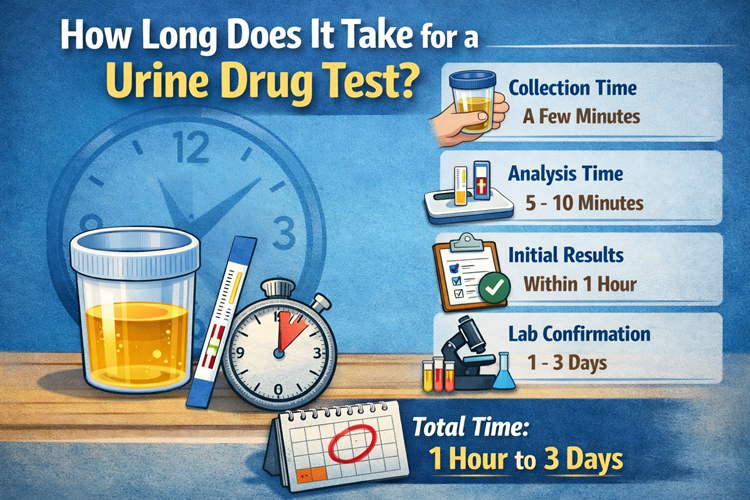Motivational Interviewing (MI) is a nonpunitive and goal-oriented counseling technique through which a determination is reinforced to have individuals become their own change agents. One of the most common methods of treatment in mental health as well as with addiction, MI helps people in identifying their willingness to change, overcome ambivalence, and transform their future into a healthier life.
At Solutions Healthcare, we specialize in applying motivational interviewing techniques to help clients struggling with depression, substance use, and co-occurring disorders build confidence and take meaningful steps toward recovery.
This blog will dissect the fundamentals of MI, its advantages, and how it is used in various fields of mental health treatment and substance abuse problems.
What is Motivational Interviewing?
In its origins, Motivational Interviewing was created by psychologists William R. Miller and Stephen Rollnick to help people with substance abuse issues. Since that time, it has spread to various spheres such as mental health, healthcare, and counseling.
Contrary to confrontational strategies, MI is non-judgmental and supportive. The therapist acts as the guide, as he or she accompanies the clients through the process of discovery of their values, strengths, and goals without pre-judging change. That is why MI is particularly relevant in the case of individuals who are doubtful, reluctant, or not motivated to get treatment.
Motivational Interviewing in Mental Health Treatment
There are various mental challenges, like depression and anxiety, that many individuals struggle with, in this regard, MI offers a humane model of finding inner drive. Therapists use motivational interviewing techniques for depression to help clients identify the gap between where they are now and where they want to be.
The benefits of motivational interviewing in mental health treatment include:
- Lessening the self-Ecriture and protest
- Motivating the clients to establish achievable aims
- The nurturing of self-confidence in small successes
- Increasing the intensity of long-term involvement in therapy
I can use it to help me when a client is stuck and they cannot consume treatment at that moment, or the client needs a push to begin the treatment. Thus, I can use it as a means of helping the client.
Motivational Interviewing and Addiction Recovery
One of the most popular applications of the MI is in the area of addiction counseling (MI). Deliberate vaginal infection. Within substance abuse, there is often ambivalence in that it seems desirable to quit but requires nerves to enter into a substance-free life. MI goes to this by stimulating dialogues that portray both sides of the battle.
Key motivational interviewing strategies for substance abuse recovery include:
- Assisting the client in organizing the personal effects of addiction
- Whenever they identified their values, the conflict between their addiction and their values was revealed.
- Promoting small, doable steps to change
- Instead of being forced by outside pressure, it is important to develop the internal one
MI is also effective in MI therapy for addiction because it promotes long-term commitment to recovery and works alongside other evidence-based treatments.
100% Confidential Support is Available 24/7
No matter what you’re going through, you’re not alone. Our dedicated team is here to provide a safe, judgment-free space where you can talk openly and honestly. Whether you need emotional support, resources, or just someone to listen.
We’re here for you—completely confidential and always respectful of your privacy. Call us today!
Motivational Interviewing for Co-Occurring Disorders
A significant proportion of persons in recovery have co-occurring disorders that include depression, anxiety or trauma with substance use. MI assists with this with a balanced treatment of the two conditions.
Through motivational interviewing for co-occurring disorders, therapists guide clients to:
- Understand the effect of mental health and addiction on one another
- Increase motivation to cope with the two challenges at the same time
- Minimise relapse with extensive coping
- Come up with a spherical recovery plan
Such a combined process renders MI very useful in dual diagnosis treatment programs.
How Motivational Interviewing Prevents Relapse
Relapse may be experienced during the recovery, but the risks can be mitigated by the kind help of MI. Motivational interviewing to reduce relapse in addiction treatment focuses on:
- Determining the early warning signs
- Reaffirming to the client her/his intention to change
- Elicitation of problem-solving skills
- To develop the self-confidence to deal with situations that involve a lot of risk
By strengthening the motivation at each point of the way, MI assists the clients to sustain the recovery in long term
Contact Solutions Healthcare
Battling with Drug and Alcohol Addition? Remember, you are not alone and we are here to help you!
Core Motivational Interviewing Techniques
Although each meeting is unique, the three major MI techniques employed by most therapists are as follows:
- Open-ended Questions – Probing the clients into wondering various thoughts.
- Reflective Listening – Demonstrating understanding by repeating the words of the clients
- Affirmations – Appreciating skill and minor achievements to build self-efficacy.
These methods combined form a nonthreatening, conducive environment in which change becomes a possibility.
Motivational Interviewing Training for Therapists
Many therapists seek motivational interviewing training for therapists in mental health to improve their practice. Training equips on:
- Build a rapport using empathy
- Using MI with complex cases like co-occurring disorders
- Making the avoidance of confrontational language that enhances resistance
- Coaching clients to Q.A.S by setting realistic goals
When used effectively, MI provides both clients and therapists with power, making the outcomes of a treatment stronger.

Seeking Help
Motivational Interviewing is not really about a counseling technique; it is a means of communication that treats the other person with dignity and promotes empowerment. Whether used in treating addictions, depression, or co-occurring disorders, MI has been seen to enhance treatment participation, minimize relapse, and lead to sustained recovery.
At Solutions Healthcare, it is our mission to help support our clients with the strategies, surround them with helpful tools, and offer words of encouragement to help them create a healthier, more fulfilling life.
FAQs on Motivational Interviewing
1. What are the 5 principles of motivational interviewing?
The 5 cues include: communication of empathy, discrepancy developed, avoidance of argument, rolling with resistance and support self-efficacy.
2. What are the 5 R’s of motivational interviewing?
The 5 R’s include: Relevance, Risks, Rewards, Roadblocks and repetition. These inform debate on change
3. What are the 5 stages of motivational interviewing?
The stages are Precontemplation, Contemplation, Preparation, Action and Maintenance. Those mirror the willingness to change on the part of the clients.
4. What is the basic understanding of motivational interviewing?
As a philosophy, MI is a non-judgmental, collaborative counseling process that increases the individual’s motivation to change.
5. What are the three main techniques used in motivational interviewing?
The key ones are open questions, reflective listening and affirmations.






















